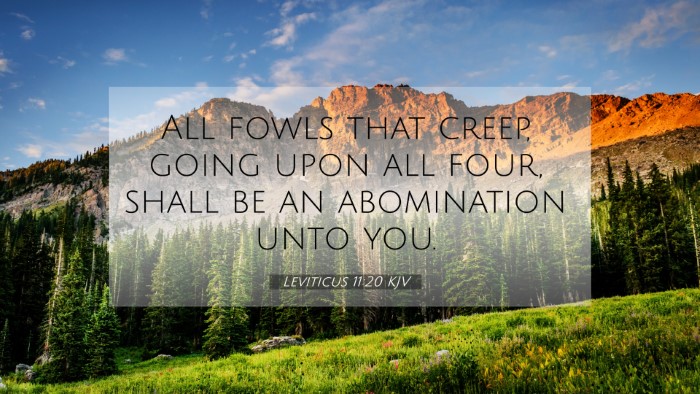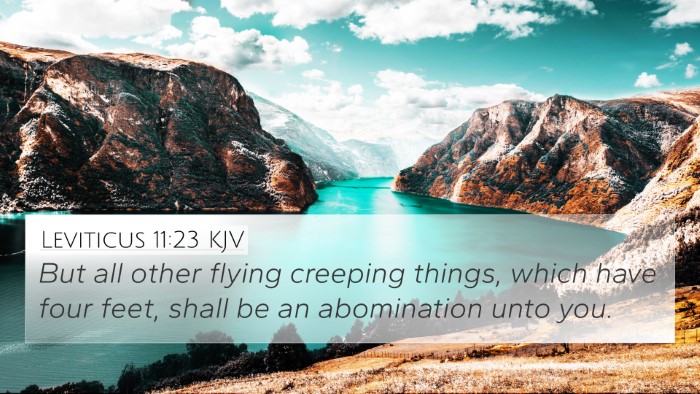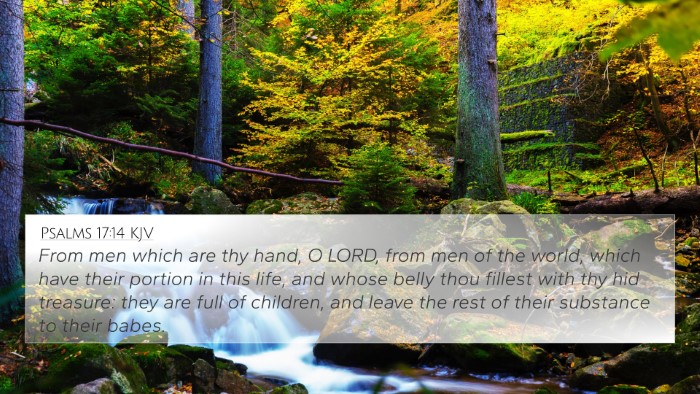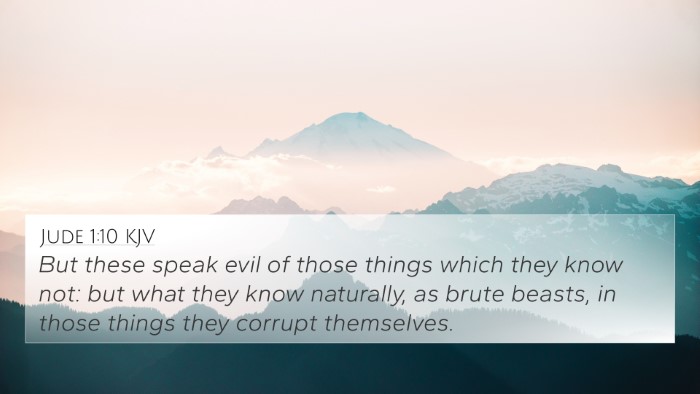Understanding Leviticus 11:20
Leviticus 11:20 states: "All flying insects that creep on all fours shall be an abomination to you." This verse falls within the larger context of dietary laws given to the Israelites, which delineate clean and unclean animals. The interpretation of this verse can be enriched by insights from various public domain commentaries.
Insights from Commentaries
Matthew Henry
Henry discusses the principle behind these dietary laws, explaining that they serve not just as physical guidelines, but also as spiritual disciplines. The creeping insects, although flying, are classified as unclean due to their movements and habits. Henry argues that this classification signifies God's desire for His people to maintain purity, both physically and spiritually.
Albert Barnes
Barnes elaborates on the specific insects mentioned here, emphasizing their role in the ecosystem and their commonness in the area. He notes that while some insects may seem insignificant, they carry profound meaning in the Law of Moses. The abhorrence of these creatures illustrates the broader theme of separation from the unclean, which can relate to moral and spiritual obligations.
Adam Clarke
Clarke provides a historical context, noting that many of these laws were given to distinguish the Israelites from neighboring tribes. He highlights that cleanliness and distinction were essential to Israel's identity, as they were God's chosen people. This verse serves as a reminder of their covenant relationship, calling them to live appropriately according to divine standards.
Cross-References and Thematic Connections
This verse can be linked with several other scripture passages, which will provide a more comprehensive understanding of biblical dietary laws and their significance.
- Deuteronomy 14:19: Discusses unclean birds and reinforces the dietary restrictions set out in Leviticus.
- Exodus 22:31: Mirrors the concept of holiness among God’s people with the command to treat the clean animals as sacred.
- 1 Timothy 4:4-5: Alludes to dietary preferences in the New Testament, suggesting that God’s creation is good and should not be rejected.
- Mark 7:18-19: Jesus speaks about food entering the body not defiling a person, contrasting with Old Testament laws.
- Acts 10:14-15: Peter's vision challenges the Jewish dietary laws, revealing that God’s message of cleansing extends beyond the Israelites.
- Romans 14:14: Discusses the freedom Christians have regarding dietary laws and the importance of not causing others to stumble.
- 2 Corinthians 6:17: Calls on believers to separate themselves from unclean things, echoing the idea of spiritual purity found in Leviticus.
Conclusion
In studying Leviticus 11:20, we uncover a rich tapestry of laws that not only governed the Israelites' physical lives but also pointed to deeper spiritual truths. The commentaries elucidate the importance of these dietary laws in maintaining the identity and holiness of God’s people. As Christians today, we can draw lessons from these passages to understand the nature of God’s expectations for purity in all aspects of life.
Further Exploration
This examination encourages the user to explore cross-references for a greater understanding of Leviticus 11:20. Utilizing tools for Bible cross-referencing, like a Bible concordance or a Bible reference resource, can facilitate a deeper comparative Bible verse analysis and enhance our comprehension of interconnected biblical themes.
Whether asking "What verses are related to Leviticus 11:20?" or seeking "How do Leviticus 11:20 and Acts 10:14 connect?", this exploration highlights the richness of God’s word and the significance of understanding the connections between Bible verses. Engaging in scriptural cross-referencing allows believers to interpret biblical themes and principles more effectively.













